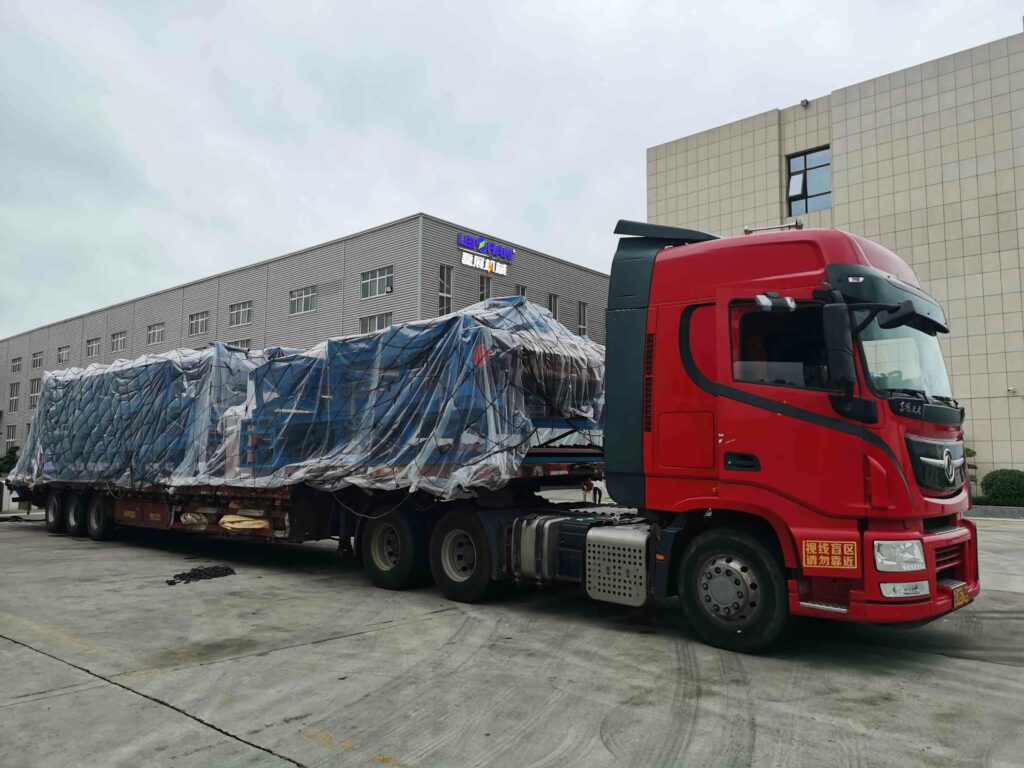How to Build a Full Scale Logistics Company That Thrives in 2025
In the fast-evolving global supply chain landscape, a full scale logistics company plays a pivotal role in ensuring seamless transportation, storage, and delivery of goods. These companies handle end-to-end logistics services, catering to businesses of all sizes and industries. This guide will walk you through what a full-scale logistics company entails, its services, and how to build one that thrives in today’s competitive market.
What Is a Full Scale Logistics Company?
A full-scale logistics company provides comprehensive logistics solutions, covering every aspect of the supply chain. These services include:
- Freight forwarding and transportation
- Warehousing and inventory management
- Order fulfillment for ecommerce businesses
- Supply chain optimization
- Last-mile delivery
Such companies act as strategic partners, offering businesses the expertise and infrastructure needed to streamline operations and meet customer demands efficiently.
Why Full Scale Logistics Companies Are Vital
- Comprehensive Solutions: They handle all logistics needs, from procurement to delivery, under one roof.
- Scalability: They cater to businesses of all sizes, from startups to multinational corporations.
- Efficiency: By optimizing supply chains, they reduce costs and improve delivery times.
Key Services Offered by Full Scale Logistics Companies
1. Freight Transportation
Managing the movement of goods via air, sea, rail, or road. This includes domestic and international shipping.
2. Warehousing and Storage
Providing secure storage facilities equipped with inventory management systems to track stock levels in real-time.
3. Order Fulfillment
Handling ecommerce logistics, including picking, packing, and shipping orders.
4. Supply Chain Management
Optimizing the entire supply chain to minimize costs and enhance efficiency.
5. Last-Mile Delivery
Ensuring goods reach their final destination quickly and safely, enhancing customer satisfaction.
How to Start a Full-Scale Logistics Company
1. Conduct Market Research
Identify gaps in the logistics market, understand customer needs, and analyze competitors.
2. Develop a Business Plan
Outline your vision, mission, target audience, services, and financial projections.
3. Secure Funding
Logistics is capital-intensive. Explore funding options such as loans, grants, or investor partnerships.
4. Build Infrastructure
Invest in:
- Fleet of vehicles for transportation
- Warehousing facilities with advanced management systems
- Logistics software for tracking and analytics
5. Obtain Licenses and Permits
Comply with local and international regulations, including freight licenses and safety certifications.
6. Hire Experienced Staff
Recruit professionals skilled in logistics operations, customer service, and technology management.
7. Leverage Technology
Use transportation management systems (TMS), warehouse management systems (WMS), and real-time tracking tools to streamline operations.
Challenges in Running a Full Scale Logistics Company
High Operational Costs
Investing in infrastructure, vehicles, and technology can be expensive.
Regulatory Compliance
Navigating complex regulations for domestic and international logistics requires expertise.
Intense Competition
Standing out in a crowded market requires innovation and exceptional service.
How Exotic Logistics Operates as a Full Scale Logistics Company
At Exotic Logistics, we provide end-to-end logistics solutions tailored to meet diverse business needs. Our services include:
- Ecommerce Fulfillment Services: From inventory management to last-mile delivery.
- Data Warehousing: Scaleable analytics solutions for smarter decision-making.
- Supply Chain Visibility: Real-time tracking and transparency for seamless operations.
By leveraging cutting-edge technology and a customer-centric approach, we ensure efficiency and reliability at every step.
Benefits of Partnering with a Full Scale Logistics Company
1. Cost Savings
Outsourcing logistics eliminates the need for businesses to invest in infrastructure and staff.
2. Scalability
As businesses grow, full-scale logistics companies can scale operations to meet increasing demands.
3. Access to Expertise
These companies have the knowledge and resources to handle complex logistics challenges.
4. Enhanced Customer Experience
Efficient logistics translate to faster deliveries and happier customers.
Industries That Rely on Full Scale Logistics Companies
Ecommerce
From order fulfillment to last-mile delivery, ecommerce businesses depend on logistics partners to meet customer expectations.
Manufacturing
Efficient transportation of raw materials and finished goods is critical for manufacturers.
Retail
Retailers rely on logistics companies to manage inventory and ensure timely deliveries to stores and customers.
Healthcare
The healthcare industry needs specialized logistics solutions for sensitive medical supplies and equipment.
Key Features of a Successful Full Scale Logistics Company
Advanced Technology
- Real-time tracking
- Automated inventory management
- Predictive analytics for demand forecasting
Strong Network
- Partnerships with shipping carriers and freight forwarders
- Warehouses strategically located near key markets
Exceptional Customer Service
- Proactive communication
- Quick resolution of issues
Tips for Scaling Your Logistics Business
Focus on Technology
Invest in software that integrates all aspects of logistics, from inventory to delivery.
Expand Your Network
Partner with local and international carriers to offer a broader range of services.
Diversify Your Services
Offer specialized solutions like cold chain logistics or hazardous material handling.
FAQs About Full Scale Logistics Companies
What Makes a Logistics Company Full-Scale?
A full-scale logistics company provides comprehensive services, including transportation, warehousing, and supply chain management, covering all aspects of the logistics process.
How Do Full-Scale Logistics Companies Benefit Small Businesses?
They offer scalable solutions, allowing small businesses to access advanced logistics infrastructure without significant investment.
What Technologies Are Essential for a Full-Scale Logistics Company?
Key technologies include transportation management systems (TMS), warehouse management systems (WMS), and real-time tracking tools.
Conclusion
A full-scale logistics company is a cornerstone of modern supply chains, offering businesses the tools and expertise to thrive in a competitive market. By understanding the fundamentals and leveraging advanced solutions, you can establish a logistics powerhouse that meets the demands of today’s dynamic industries.
For more insights into logistics and supply chain optimization, explore our end-to-end supply chain visibility solutions and data warehousing services at Exotic Logistics.




